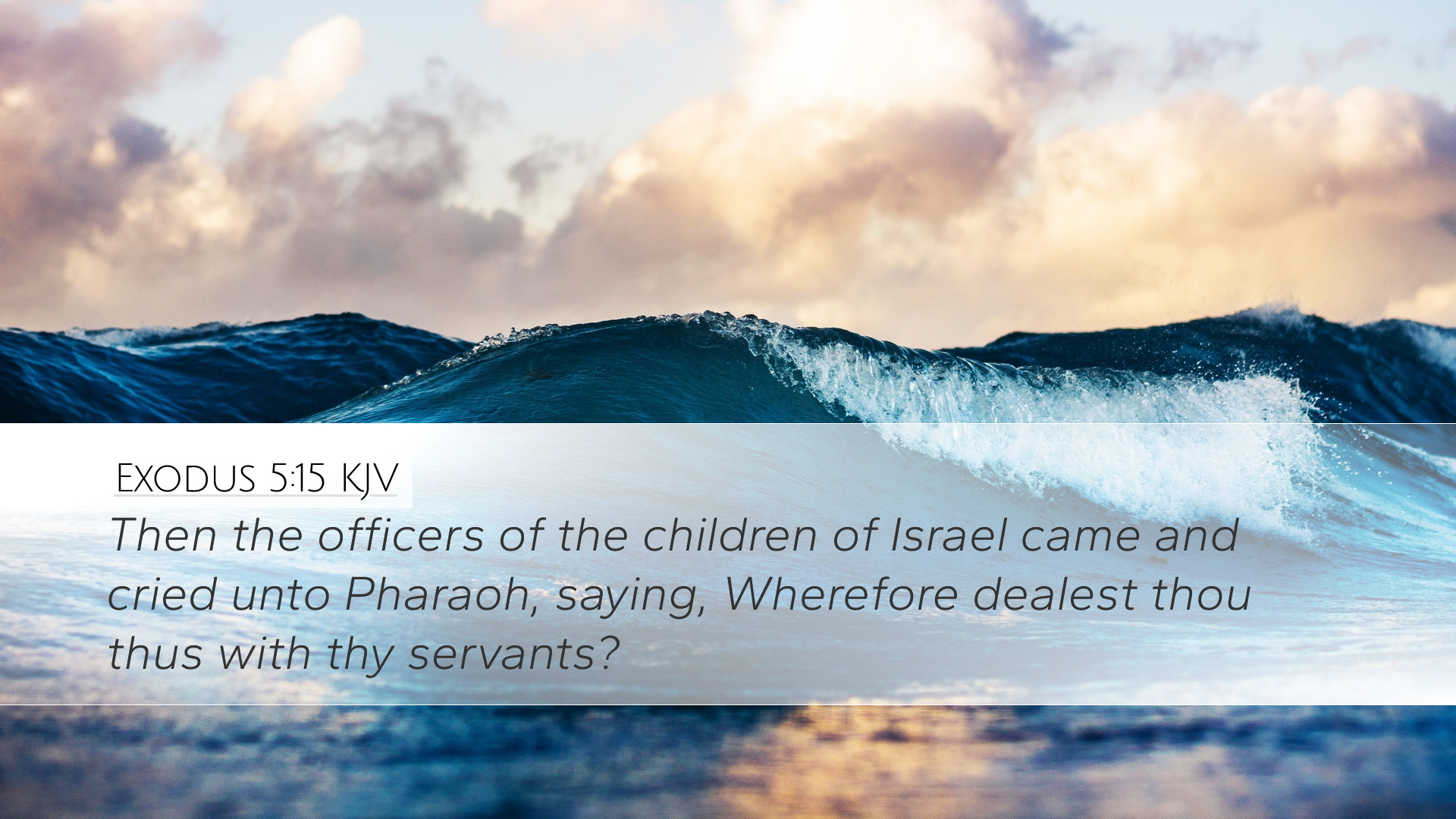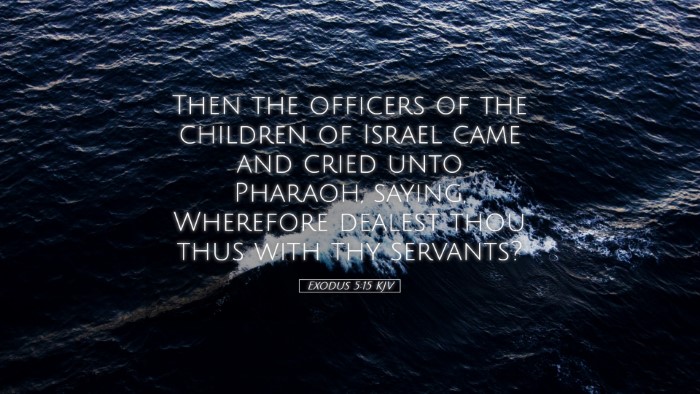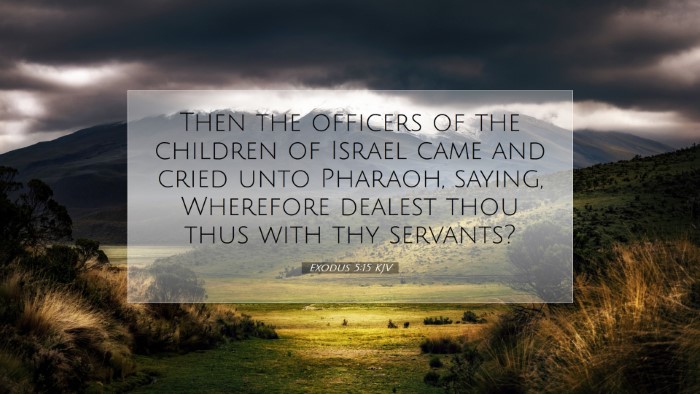Commentary on Exodus 5:15
Exodus 5:15 states: "Then the officers of the children of Israel came and cried unto Pharaoh, saying, 'Wherefore dealest thou thus with thy servants?'" This verse captures a crucial moment in the struggle of the Israelites under Egyptian bondage, revealing the tension between the oppressors and the oppressed, and opening a window into their collective suffering.
Contextual Analysis
The narrative of Exodus revolves around Moses' mission to liberate the Israelites from Egyptian slavery. Before reaching chapter 5, the groundwork has been laid for understanding the harsh realities that the Israelites face. The chapter paints a bleak picture of the escalation of their suffering following Moses’ demands to Pharaoh. The officers, appointed representatives of the Israelites working under the burdens of Pharaoh, approach the king with desperation, underscoring their plight.
The Role of the Officers
According to Matthew Henry, the officers of the children of Israel represent the leadership among the laborers in Egypt. Consisting of men who were likely appointed by Pharaoh or the taskmasters, these officers are put in the precarious position of mediating between their fellow Israelites and the oppressive regime. Henry notes that their approach to Pharaoh is filled with urgency and concern, indicative of the increased burden placed upon them by Pharaoh's oppressive edict.
Albert Barnes reflects on the role of the officers as intermediaries, declaring that their position is profoundly tragic. They are charged with enforcing labor decrees yet find themselves at the mercy of Pharaoh's whim. Their cry to Pharaoh highlights the unbearable nature of their servitude. These men, akin to leaders or foremen, suddenly realize that negotiation is useless against the deeply entrenched system of oppression.
The Significance of Their Cry
The cry of the officers represents more than just a mere request for relief; it is an appeal for dignity and justice. Adam Clarke emphasizes the emotional intensity of this plea. The phrase "Wherefore dealest thou thus with thy servants?" encapsulates not just their work-related grievances but their humanity being stripped away under the burden of toil and humiliation.
- Desperation: The officers’ cry illustrates the height of their desperation. They appeal directly to Pharaoh, reflecting a profound sense of hopelessness that drives them to seek nourishment for their souls, rather than merely relief from their physical burdens.
- Leadership Struggles: These officers may have felt a sense of betrayal. They were tasked with the impossible job of enforcing regulations they had no control over. Their position becomes one of deep conflict as they are forced to choose between their roles and the wellbeing of their people.
- Call for Justice: This moment sets the stage for God's forthcoming deliverance, highlighting that true leadership seeks the welfare of those they oversee.
Pharaoh's Response
Although not recorded in this specific verse, Pharaoh's unwarranted disdain serves as a stark reminder of the systemic brutality of oppressive regimes. Their complaint will not be met with sympathy but rather an intensification of their labor, hence exposing the heartlessness of the taskmasters. This theme resonates deeply within the socio-political commentaries of the Bible, leading to the question of how righteousness can prevail in the face of such evil.
Theological Implications
The struggles of the Israelites forge a foundation for understanding God's eventual intervention on their behalf. The cry from below signifies a collective lament that mirrors many cries present in humanity, pointing toward the overarching theme of redemption throughout the Bible.
Key Themes Explored
- Burdens of Authority: The officers’ plea reminds us that authority carries burdens that often affect the most vulnerable. This is a poignant reflection for leaders in any capacity.
- Dependence on Divine Intervention: The narrative illustrates the necessity of divine deliverance—a recurring theme that God hears the cries of the oppressed, and though silence may seem deafening initially, there is a promise of liberation.
- Human Dignity: This verse brings to light the significance of human dignity and the drive for justice. It challenges all readers to recognize and respond to injustices in society.
Conclusion
Exodus 5:15 serves as a powerful reminder of the plight of the oppressed and encourages a close examination of leadership dynamics within structures of authority. As scholars, pastors, and students dive deeper into these scriptures, they should consider not only the historical and cultural contexts but also the enduring truths applicable to today’s struggles for justice and dignity. The lament of the Israelites, encapsulated in their poignant query to Pharaoh, serves as a rallying cry for change—a theme that resonates deeply throughout scripture and into contemporary times.


